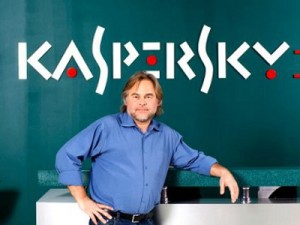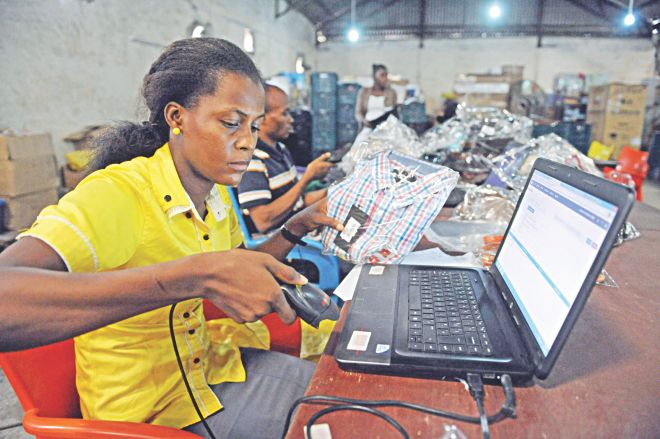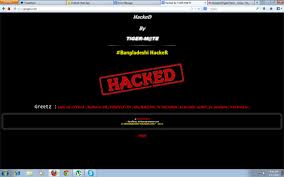53% of South African based IT decision makers feel that not enough time or money is available to develop IT security policies. As a result, barely half of the companies feel that they have highly-organised, systematic processes to deal with threats. These findings emerged from the recent Global Corporate IT Security Risks 2013 survey conducted by B2B International for Kaspersky Lab in 2013 among business representatives around the world. The situation is especially poor in the global educational industry, where only 28% of organisations are confident that they have sufficient investment in…
Read MoreCategory: TECH
Comments and Questions by DCA Trust on .Africa at the ICANN-47 Public Forum, Durban SA
This is a complete unabridged version of the comment/questions raised by Ms. Sophia Bekele, Executive Director and CEO of DotConnectAfrica Trust, at the ICANN-47 Public Forum Meeting in Durban, Republic of South Africa on 18th July 2013. A shorter version was read out at the ICANN Public Forum Meeting on Thursday, July 18, 2013 due to constraint of time. * * * Background DotConnectAfrica Trust’s application for the .Africa generic Top-Level Domain name (Application ID: 1-1165-42560) received a GAC Objection Advice at the ICANN-46 Beijing Meeting in April 2013. According…
Read More‘.nyc’ Domain Approved For NYC Online Addresses
NEW YORK — New York City likes to think of itself as a domain like no other, and now it’s close to being able to boast as much on the web. The city has gotten a key approval for a “.nyc” suffix online, Mayor Michael Bloomberg and City Council Speaker Christine Quinn announced Tuesday. That would mean web addresses could end in “.nyc” instead of such common suffixes as “.com” or “.org.” “Having our own unique, top-level domain – .nyc – puts New York City at the forefront of the…
Read MoreOnline retail begins to click in Africa’s biggest market
The headquarters for this Internet startup is cheekily nicknamed “Graceland” and its co-heads are young Harvard graduates with grand plans who have rapidly expanded the business over the past year. Silicon Valley? Not even close. This emerging world Internet company, called Jumia, is now located in Nigeria, and the founders of the business here say there is no better place to pursue their strategy. Nigeria, Africa’s biggest market of 160 million people, has seen Internet access expand rapidly in recent years, opening opportunities for companies to exploit. While major obstacles…
Read MoreU.S. Confirms That It Gathers Online Data Overseas
WASHINGTON — The federal government has been secretly collecting information on foreigners overseas for nearly six years from the nation’s largest Internet companies like Google, Facebook and, most recently, Apple, in search of national security threats, the director of national intelligence confirmed Thursday night. The confirmation of the classified program came just hours after government officials acknowledged a separate seven-year effort to sweep up records of telephone calls inside the United States. Together, the unfolding revelations opened a window into the growth of government surveillance that began under the Bush…
Read MoreKaspersky plans source code reveal to avoid Huawei’s fate
By Simon Sharwood, APAC Editor • Get more from this author Posted in Security, 30th May 2013 05:56 GMT Free whitepaper – European migration survey Eugene Kaspersky thinks Huawei’s products contain “some doors, they are not back doors, but somewhere in-between”, but that overall “there is nothing really wrong with Huawei”. Th Russian security supremo is nonetheless taking steps to ensure his company doesn’t experience the same less-than-welcoming reception Huawei has found in the US market. Kaspersky offered his opinion to Vulture South yesterday. Kaspersky breezes into Australia most years and…
Read MoreThe danger of blindly trusting the technocrats
We are living in the age of the technocrats. In business, Big Data, and the Big Brains who can parse it, rule. In government, the technocrats are on top, too. From Washington to Frankfurt to Rome, technocrats have stepped in where politicians feared to tread, rescuing economies, or at least propping them up, in the process Technocrats are in vogue within the intelligentsia, too. It is well nigh impossible to pick up a book about any social or political issue nowadays (including, I hasten to acknowledge, my own) without coming…
Read MoreICANN on Africa’s Internet Market and Hub Offices: Interview with Brad White, ICANN’s Director of Global Media Affairs
Africa is increasingly becoming a key player in global business and essential resources like the internet will definitely be forming a critical part of this growth. At the end of 2012, Africa’s internet penetration rate was quoted as heading to 16%. While this is quite low compared to global rates, the continent has witnessed a sharp rise in internet usage in recent years and analysts say the increase is now poised to rise at tremendous rates as thousands of Africans come online by the day. Adapted From bizrika.com
Read MoreCybersecurity and Internet Governance
Editor’s note: This brief is a feature of the Council of Councils initiative, gathering opinions from global experts on major international developments. Cybersecurity is now a leading concern for major economies. Reports indicate that hackers can target the U.S. Department of Justice or Iranian nuclear facilities just as easily as they can mine credit card data. Threats have risen as the Internet has become a critical infrastructure for the global economy, with thousands of operations migrating onto it. For example, the innocuous practice of bring-your-own-device to work presents mounting dangers…
Read More‘Bangladeshi’ hacks Google’s local domain, users redirected
Internet users trying to access Google’s search engine on Monday morning quickly discovered the company’s local domain was compromised. A hacker, who identified himself as Bangladeshi, defaced the company’s Google.co.ke domain, replacing the page with a black background with the word ‘hacked’ engraved on it. The error was quickly fixed. Google Kenya, however, denied claims it had been hacked into. The company explained that it was the domain name server (DNS) which hosts google.co.ke that had been compromised. Adapted from nation.co.ke
Read More








